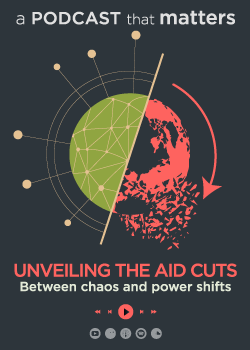Print

PROTECT-EUROPE: Vaccinating Europe to Protect Against the Cancers Caused by HPV: PROTECT-EUROPE
Details
Locations:Belgium, Bulgaria, Croatia, Cyprus, Czech Republic, Greece, Hungary, Ireland, Italy, Luxembourg, Netherlands, Portugal, Romania, Slovenia, Spain, Sweden
Start Date:Jan 1, 2023
End Date:Dec 31, 2024
Sectors: Gender, Health, Media and Communications, Youth
Categories:Grants
Funding Agencies:
Date posted:Dec 13, 2022
Description
Programme(s): EU4 Health Programme (EU4H)-EU4H-1
Topic(s): EU4H-2021-PJ-08
Type of action: EU4H Project Grants
Project ID: 101080046
Objective: Gender-neutral HPV vaccination is a flagship policy in Europe’s Beating Cancer Plan. If implemented throughout the EU with high levels of uptake, it has the potential to eliminate all the cervical, anal, vaginal, penile, head and neck cancers caused by HPV, around 67,500 new cases a year in the Member States. A key challenge to achieving high vaccine uptake is overcoming vaccine hesitancy, often based on concerns about safety. In most countries, uptake is currently too low to achieve ‘herd protection’. The PROTECT-EUROPE project aims to tackle this problem on two levels. First, it will provide information and training on optimising one-to-one communication with young people and their parents/carers for the wide range of healthcare professionals involved in HPV vaccination. The training programmes will be delivered online and will be cascaded into Member States via a training-the-trainers approach. Secondly, the project will provide Member States and civil society organisations with a role in public health with guidance and a set of campaign tools aimed at young people and their parents/carers that can be used to encourage vaccination. The campaign tools will be designed for use across a range of platforms, including social media, websites, posters and leaflets. The potential of sport, specifically soccer, as an influencer will be explored. Particular attention will be paid to addressing issues of equality and diversity. All the project’s outputs will be made available via an accessible online hub and disseminated via a final project report and a high-level event. The whole project will be independently evaluated by an academic institution. 34 organisations from 17 countries and a wide range of backgrounds (including oncology, general practice, pharmacy, nursing, patients, young people, public health, soccer), plus a wide range of experts, are members of the PROTECT-EUROPE consortium. Nine of the countries represented have a GNI inferior to 90% of the EU average.
